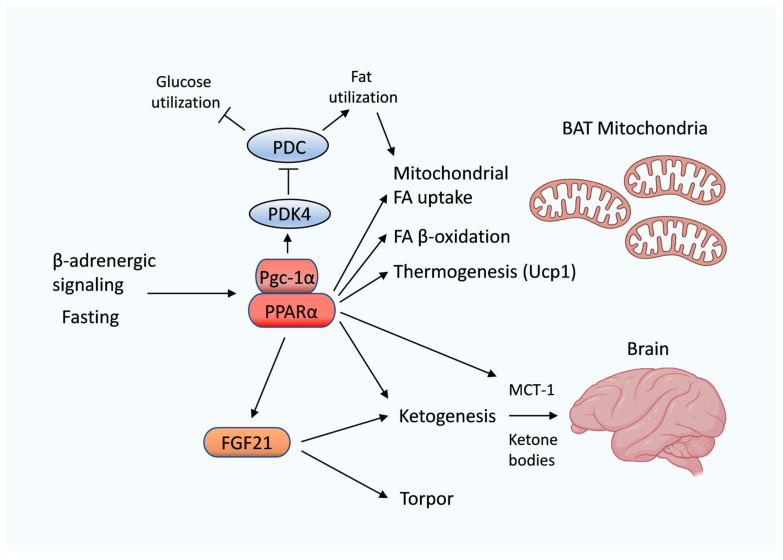Figure 3.
PPARα induces a metabolic shift toward lipid oxidation and ketogenesis in hibernating animals. PPARα promotes lipid catabolism through transcriptionally activating pyruvate dehydrogenase kinase 4 (PDK4), which inhibits the pyruvate dehydrogenase complex (PDC). Suppression of the PDC complex adjusts fuel selection away from glucose and toward fatty acid oxidation. PPARα responds to fasting and β-adrenergic signaling and activates fatty acid (FA) uptake into mitochondria, FA catabolism and Ucp1-mediated thermogenesis. In addition, PPARα induces fibroblast growth factor 21 (FGF21) to promote ketogenesis and torpor. Ketone bodies are elevated during torpor and are an essential fuel source, predominantly for the brain. PPARα directly controls ketone body formation and their transport across the blood–brain barrier through upregulation of the monocarboxylate transporter 1 (MCT-1). BAT, brown adipose tissue; Pgc-1α, PPARγ coactivator-1α; PPARα, peroxisome proliferator-activated receptor-α; Ucp1, uncoupling protein-1.

